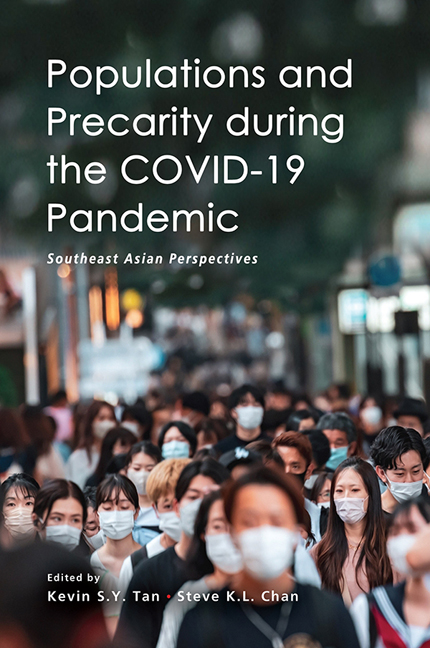
- Publisher:
- ISEAS–Yusof Ishak Institute
- Online publication date:
- March 2024
- Print publication year:
- 2023
- Online ISBN:
- 9789814951500
- Subjects:
- Sociology of Race and Ethnicity, Sociology

This volume is a collection of articles that examines how the COVID-19 pandemic affected and intersected with various Southeast Asian contexts in the broad areas of migration, education and demographic policy. At the height of the pandemic from 2020-22, the resulting restrictions to international travel, ensuing nationwide lockdowns and eventual economic crises formed part of what many commentators referred to as a 'new normal'. Apart from being a global health crisis, the pandemic disrupted and transformed the experience of everyday life at all levels of society, where many of its effects are now likely irreversible. In particular, the impact of the pandemic certainly affected the most vulnerable individuals and communities throughout the region, especially in countries that are experiencing rapid ageing such as Singapore and Thailand. Examples of the most affected include low-wage migrant workers, the disabled and the children of impoverished families. For many who were already living in a state of precarity, the structural 'side-effects' of the pandemic were at times more deadly than the coronavirus itself as it often negatively impacted livelihood, social-emotional ties and overall well-being. At the same time, the 'new normal' has further created conditions that raise the likelihood of occupational precarity even for long-term professionals within established fields like education. In other words, few experienced the COVID-19 pandemic without encountering both tangible and intangible challenges, regardless of where one was situated.
 Loading metrics...
Loading metrics...
* Views captured on Cambridge Core between #date#. This data will be updated every 24 hours.
Usage data cannot currently be displayed.